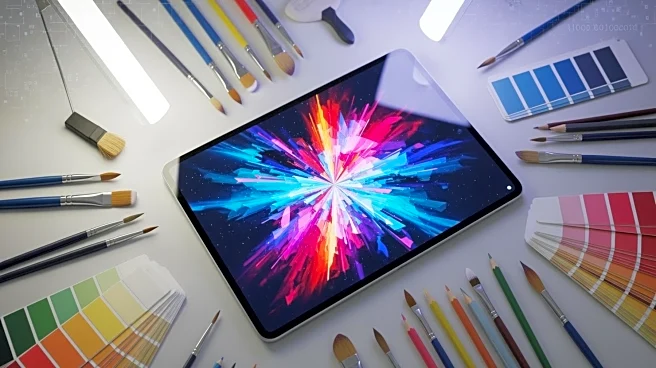What's Happening?
Adobe is preparing to unveil significant updates for its popular software, Photoshop and Lightroom, during the Adobe Max 2025 conference scheduled for October 28-30 in Los Angeles, California. The annual
creativity conference is known for showcasing new features and innovations in Adobe's suite of creative tools. This year, the event will include keynotes, workshops, and the 'Sneaks' segment, where Adobe teases upcoming developments. Past conferences have introduced features like Distraction Removal and generative workspaces. The 2025 event is expected to focus on advancements in artificial intelligence, reflecting Adobe's ongoing commitment to integrating AI into its software.
Why It's Important?
The anticipated updates to Photoshop and Lightroom are crucial for creative professionals who rely on Adobe's software for their work. Enhancements in AI capabilities could streamline workflows, improve efficiency, and enable new creative possibilities. As Adobe continues to innovate, these updates may strengthen its position as a leader in the creative software industry, influencing competitors and setting new standards for digital content creation. The conference also serves as a platform for Adobe to engage with its user community, gather feedback, and showcase its vision for the future of creative technology.
What's Next?
Following the announcements at Adobe Max 2025, users can expect the rollout of new features across Adobe's software suite. The integration of AI-driven tools may lead to further developments in automated editing and design processes. Adobe's focus on AI could also prompt other software companies to accelerate their own AI initiatives, potentially leading to a wave of innovation in the creative technology sector. Additionally, the conference's online sessions offer opportunities for users to learn and adapt to new tools, fostering a community of skilled professionals equipped to leverage the latest advancements.
Beyond the Headlines
The emphasis on AI at Adobe Max 2025 highlights broader trends in technology, where artificial intelligence is increasingly becoming a cornerstone of software development. This shift raises questions about the ethical implications of AI in creative work, including concerns about automation and the potential impact on jobs. As AI tools become more sophisticated, the industry may need to address issues related to intellectual property, creativity, and the role of human input in digital art and design.

